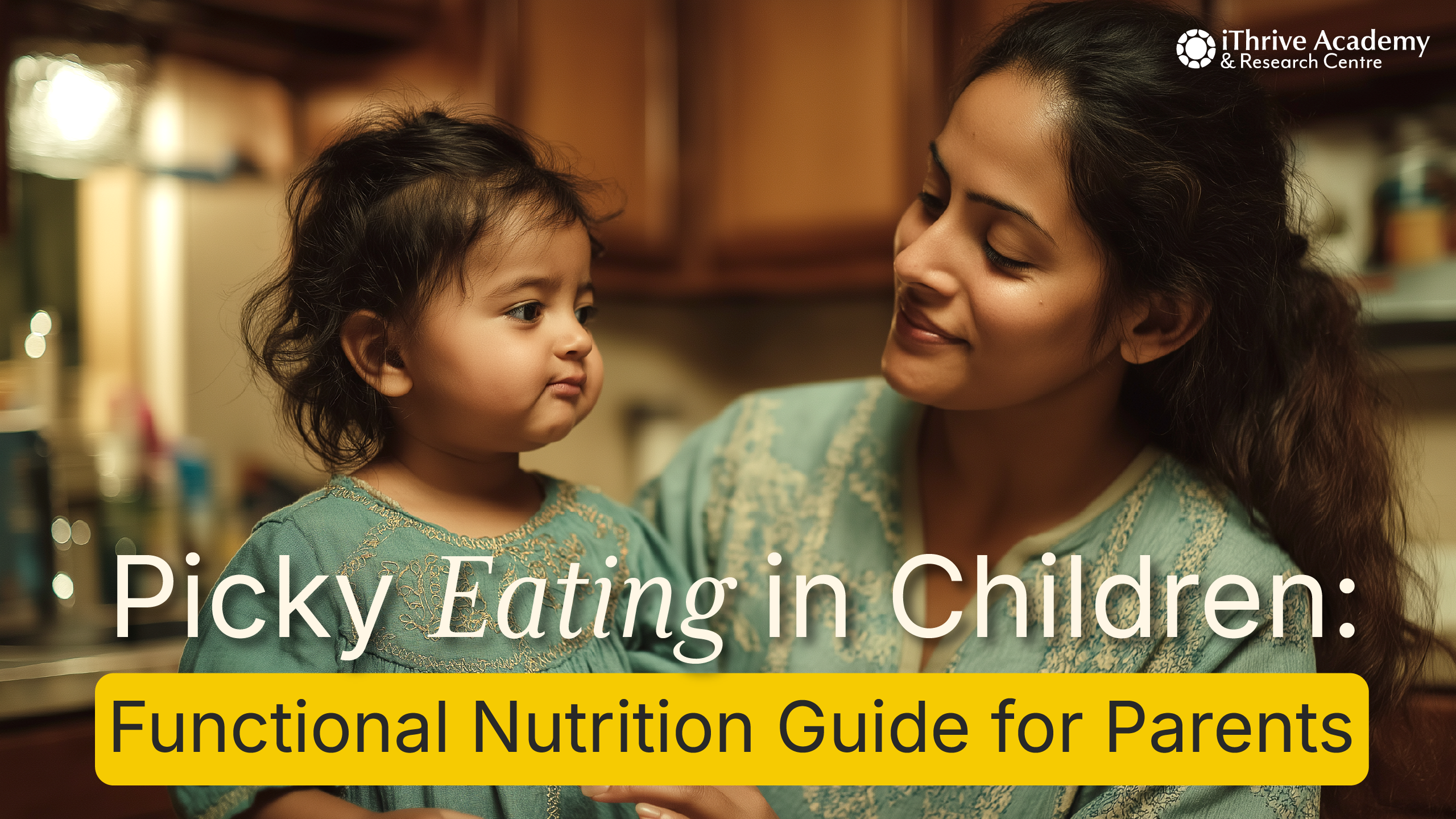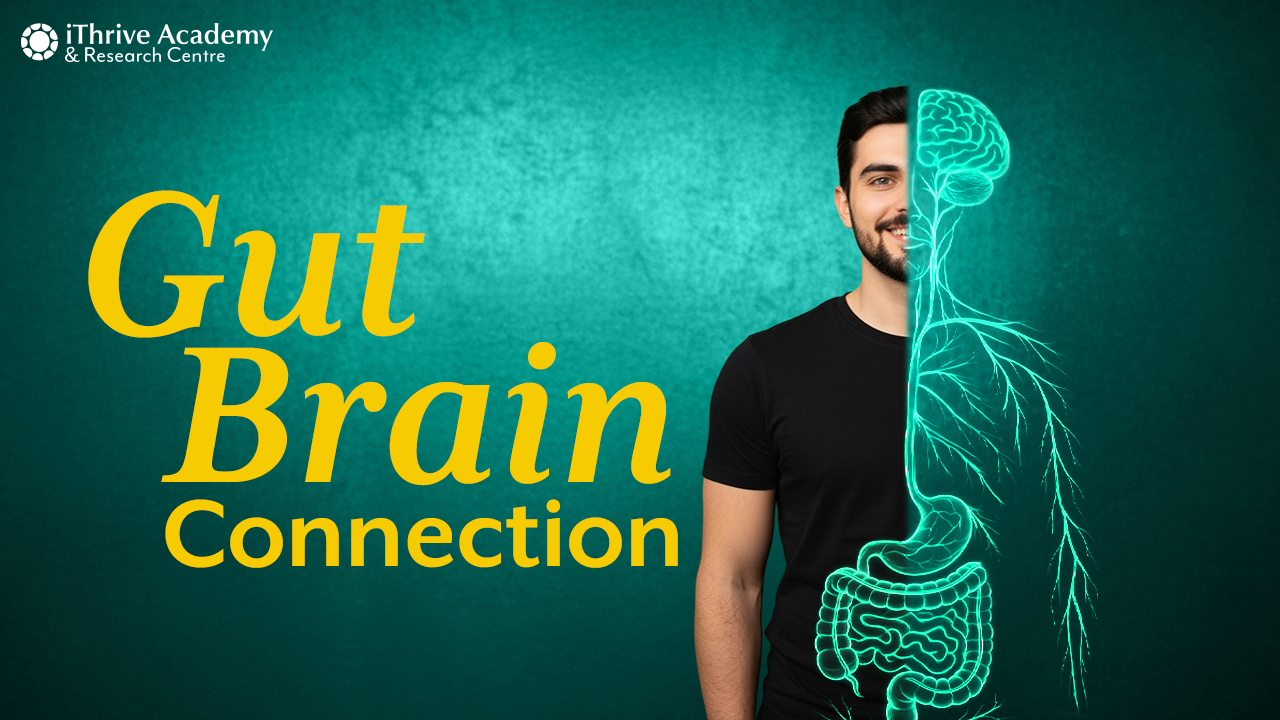Childhood - an age full of wonderment, curiosity, learning, and growth, both physical and mental. But what if, all the wonders during this wonderful phase of life get stunted because of poor nutrition? Deficiencies in nutrients like carbohydrates, proteins, fats, vitamin A, zinc, iron, vitamin B12, and more can each have severe consequences including- infections, blindness, cognitive impairment, Protein-energy malnutrition, and decreased school performance among other problems. 1 Nutrient deficiencies in kids often go unnoticed, masquerading as common childhood complaints. However, the signs below can be red flags that something deeper is amiss. Recognizing the early signs is crucial for ensuring your child's optimal health and development.
What is Nutrient Deficiency in Kids?
In the growth years proper nutrition is essential for kids for their optimal development and to keep them away from nutritional diseases. Micronutrients (vitamins and minerals needed in small amounts for the body's functions) are not produced naturally by the body. Hence, kids need to get them from their diet. Nutrient deficiency occurs when a child has an inadequate intake of a specific nutrient. It can also occur when the body doesn’t absorb a specific nutrient properly. For instance Globally in 2022, 149 million children under 5 were estimated to be stunted (too short for age), 45 million were estimated to be wasted (underweight for height), and 37 million were overweight or living with obesity. 2 Let’s see what are the top signs that indicate nutritional deficiencies in kids.
Top Signs that Indicate Nutritional Deficiencies in Kids
1. Delayed Speech
Delayed speech in children can be a result of a few factors, one of them being vitamin deficiencies, especially B12. It plays a vital role in neurological development and speech. A deficiency of this vitamin can lead to impaired brain function and affect motor and language skills. 6 For infants suffering from B12 deficiency, there are initial symptoms like feeding difficulties, irritability, and aversion to food other than breast milk.
2. Hair Loss
Finding your kid's hair around is not a big issue, that is common but finding chunks of it under the bed or or the pillow can be a cause to worry. With low iron levels, your children can suffer from fatigue and low energy levels, thyroid disease, or even hair loss. Your body cannot make the hemoglobin in your blood if you don't have enough iron. Your body's cells, including those that promote hair development, depend on hemoglobin to carry oxygen for growth and repair. 7
3. Slow Healing Process
If your child has a slow healing process it can lead to swollen and red gums after brushing and flossing daily or another sign is that they bruise like a peach. This means that you need to increase the vitamin C intake for them. It is the glue that sticks cells together and makes the wounds heal faster.
4. Low Energy Levels & Foggy Brain
Iron and vitamin B12 deficiencies can cause low energy and foggy brain symptoms like confusion and lack of focus. Persistent fatigue, difficulty concentrating, and forgetfulness may indicate underlying health issues that require attention.
5. Obesity
It's a common misconception that obesity results solely from overeating. In reality, children with obesity often suffer from hidden nutrient deficiencies. You might not realise but despite consuming calorie-rich foods, their diets may lack essential vitamins and minerals. This paradox arises because consumption of packaged foods that fail to provide the necessary nutrients, leading to malnutrition amid overnutrition. Vitamin D is beneficial for weight loss in obese children.
6. Sleep issues
Sleep disturbances can be due to several factors, it may be because of a magnesium deficiency - as it plays a crucial role in regulating neurotransmitters involved in sleep, such as gamma-aminobutyric acid (GABA), its deficiency can lead to fatigue, and anxiety, and more can be due to B6 deficiency, essential for the production of serotonin. Vitamin D plays a role in regulating the body's internal clock, known as the circadian rhythm. Addressing these deficiencies through dietary adjustments can significantly improve sleep quality and duration and also include vitamin drops for toddlers to provide a complete diet.
7. Deteriorated night vision
A lack of vitamin A can lead to a loss of night vision and the sharpness of your sight. Vitamin A is important in producing rhodopsin (a pigment found in the retina of each eye that helps you see at night). Vitamin A deficiency is more common than you can think as approximately 190 million preschool-aged children, suffer from vitamin A deficiency, and there is evidence linking it to severe acute malnutrition. 4 Night blindness can also cause xerophthalmia. It is a condition that can damage your cornea and ultimately lead to blindness
8. Learning problems
Researchers suggest that micronutrient deficiencies can hamper brain development and cognitive function, leading to learning difficulties, poor concentration, and decreased academic performance. Approximately 372 million preschool-aged children (6–59 months) suffer from one or more deficiencies in micronutrients.
Which Nutrient Deficiencies are Most Common in Children?
Making sure that children receive adequate nutrition can be a daunting task during the time of their growth and development. There are certain nutrients that children lack that impact their health and well-being. Here is a list of the most common nutrient deficiencies-
Iron deficiency-
Kids and their picky nature can result in nutritional disorders like Iron deficiency is said to be the most common nutritional deficiency among children. 3 Iron is necessary for several body processes in your child. Hemoglobin, the protein that transports oxygen from the lungs to the rest of the body, has iron as a crucial component. Depending on their age, kids need different amounts of iron:

Best dietary sources: Red meat, pork, poultry, shellfish, organ meat, dark green leafy vegetables such as spinach, lentils, and pulses.
Vitamin D deficiency
Vitamin D deficiency can lead to several issues like bone pain, rickets, muscle weakness, development delays, and an increased risk of infections. The absorption of several minerals, such as calcium, iron, magnesium, zinc, and phosphate, depends on vitamin D, a fat-soluble vitamin.

Best dietary sources: Fatty fish and fish oil, and sun exposure to growing children, for healthy bone development.
Zinc Deficiency-
Children who are zinc deficient may experience several problems, such as stunted growth, compromised immune systems, skin disorders, appetite loss, and even brain disorders.

Best dietary sources: meats, poultry, eggs, lentils, chickpeas, beans, pumpkin seeds and hemp seeds.
Calcium deficiency-
For bone growth, heart health, and nerve and muscle functioning calcium helps the best. Children need to have adequate calcium in childhood as they develop strong bones well into adulthood.

Best dietary sources: Milk, fish (salmon and sardines), ragi, sesame seeds and chia seeds.
Vitamin B12-
Vitamin B12 is efficient for healthy red blood cells, enhanced immunity, cognitive development, and also converting food into energy. The deficiency of vitamin B12 has become a global public health problem in developing countries. High prevalences of vitamin B12 deficiency have been observed in children aged 2–18 months. 5 Depending on their age, the requirement of B12 in their body shifts:

Best dietary sources: Eggs, chicken liver, fish, and red meat, and can also give Vitamin B12 supplements.
Physical signs of nutritional deficiencies in children

There are several physical signs of nutritional deficiencies in children. Here is a list of a few of them:
- Irritability
- Poor appetite
- Falling off’ growth charts
- Dental problems
- Frequent illnesses
- Recurring infections
- Slow wound healing
- Long duration of illnesses
- Fatigue and low energy levels
- Muscle weakness or poor muscle tone
- Brittle hair and nails
- Slow growth and development compared to children of a similar age
- Pale skin, lips, and nail beds
- Skin conditions such as eczema
How can you prevent nutritional deficiencies?

To give your child the necessary nutrients you need to provide them with a well-balanced diet to prevent nutrient deficiency. You can teach your child to eat healthy as there can be several factors that prevent kids from eating a balanced meal:
- Genetic disorder
- Food allergies
- Picky eating
- Gastrointestinal issues that prevent the proper absorption of nutrients
- Children with medical conditions that impact nutritional status, such as cystic fibrosis
- Availability of food
- Cultural Influences
Conclusion
As a parent, your child’s health is indeed a priority and with growing diseases you being concerned about some disease attacking your child is not you overreacting that is just your parental sense coming into play. Providing a proper diet to your children is important during their growing times. Nutritional deficiencies in children can manifest in various ways, including fatigue, learning difficulties, sleep disturbances, and behavioral changes. Although these symptoms are frequently ignored, they are important markers of underlying medical conditions. Crucial components for a child's growth, cognitive development, and general health include iron, vitamin B12, omega-3 fatty acids, and vitamin D.










.jpg)











